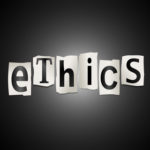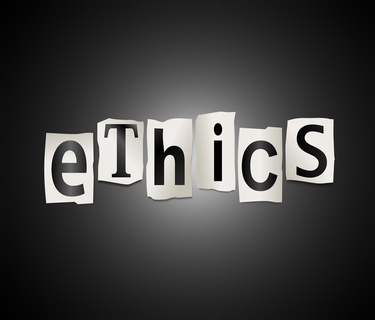 For several years my attorney ethics presentations and papers have emphasized that lawyer supervision and particularly non-lawyer supervision, in my experience, is an area of concern for attorneys who practice debt collection law. A recent opinion from New York’s Appellate Division, Second Department, concerning the conduct of a debt collection law firm provides an example of the harm that may result from less than robust supervision of attorneys and non-attorney staff.
For several years my attorney ethics presentations and papers have emphasized that lawyer supervision and particularly non-lawyer supervision, in my experience, is an area of concern for attorneys who practice debt collection law. A recent opinion from New York’s Appellate Division, Second Department, concerning the conduct of a debt collection law firm provides an example of the harm that may result from less than robust supervision of attorneys and non-attorney staff.
Attorneys who practice debt collection are probably the most “compliance-aware” branch of lawyers today. They are routinely subject to client audits of their practices’ operations and financial records. Some even have ISO 9001:2008 certifications, an international standard for extraordinary compliance management systems. Debt collection attorneys are often (and in some cases routinely) subject to lawsuits brought against them by the very persons they are retained to pursue and so have implemented procedures designed to avoid transgressions. Even the Consumer Financial Protection Bureau argues, though not persuasively, it can supervise attorneys, a position I believe relies on a flawed analysis of Heintz v. Jenkins, 514 U.S. 291 (1995). [ref]Defining Larger Participants in Certain Consumer Financial Product and Service Markets, (proposed Rule) 77 FR 9592 , n. 28 (2/17/12). [/ref]
With all of this scrutiny, this new ethics ruling likely has collection attorneys already wanting to know what impact it has on their practices and, particularly, how it can help them improve their practices.
The Opinion
Four charges were made against the collection law firm and its principal attorney in 2008 stemming from multiple matters, all involving debt collection. The facts outlined in the opinion noted instances where the wrong person was sued and, in some cases, the debt was previously satisfied. Another grievance concerned a satisfaction of judgment that had not been timely filed.
Following a disciplinary hearing in 2011, a special referee dismissed three of the four charges. The special referee sustained a charge of engaging “in a pattern and practice of conduct prejudicial to the administration of justice” by collecting debts “without conducting a reasonable and proper search to verify the identity and property of alleged debtors, and the validity of the alleged debts.”
As is the typical case in most disciplinary proceedings, the matter was sent to a court to confirm or disaffirm the hearing’s findings. The result was not good as all charges were sustained by the Appellate Division. And, it appears the failure to have proper controls to supervise attorneys and non-attorneys was at the core of the Appellate Division’s reasoning.
The facts reported in the opinion indicate that there was information contained in several of the files that should have alerted the lawyer that the wrong person was being pursued. What appears to have troubled the Appellate Division panel was that the conduct occurred despite the existence of contrary information contained in the attorney’s files.
It does not appear that the principal attorney personally handled any of the matters that were the basis for discipline. But the opinion largely faults the principal attorney for the conduct even if he lacked personal knowledge of the transgressions.
Conduct a Procedures Review
Because the grievances arose from a 2008 petition, New York’s former Disciplinary Rules were applied. New York has since adopted a form of the American Bar Association’s Model Rules of Professional Conduct.
Model Rule 5.3 requires lawyers having “managerial authority” in a law firm to “make reasonable efforts to ensure that the firm has in effect measures giving reasonable assurance” that non-lawyers’ conduct will be “compatible” with the lawyer’s professional obligations.[ref]ABA Model Rule 5.3(a).[/ref] Model Rule 5.1 requires lawyers with supervisory authority over other lawyers within a firm to have made “reasonable efforts to ensure that the firm has in effect measures giving reasonable assurance that all lawyers” conform with the Rules of Professional Conduct. The absence of such procedures, alone, can be a basis for discipline.[ref] Matter of Miller, 178 Ariz. 257, 872 P.2d 661 (1994), citing Matter of Galbasini, 163 Ariz. 120, 786 P.2d 971 (1990); In re Cater, 887 A.2d 1 (DC 2005); Fla. Bar v. McAtee, 601 So. 2d 1199 (Fla. 1992).[/ref]
Debt collection attorneys, particularly those engaged in retail collections, likely already have developed “procedures reasonably adapted to avoid … error[s]” of FDCPA compliance.[ref]15 U.S.C. 1692k(c).[/ref] However, Model Rules 5.1 and 5.3 call for procedures governing other areas of attorney conduct that is not always “consumer facing.” For example, attorneys have faced discipline for having no procedures in place to protect against misappropriation of trust funds. Another example would be not having procedures to protect client confidences (Model Rule 1.6). Discipline is not typically imposed for the failings of non-attorneys or supervised attorneys — but if the supervising attorneys had no or inadequate procedures to ensure conformance with professional conduct, then discipline will likely follow. [ref]In re Hecker, Supreme Court of New Jersey, Disciplinary Review Board, Docket No. DRB-09-372, p. 78 (August 9, 2010).[/ref]
The facts reported in the opinion indicate information existed in several of the firm’s files that should have alerted it that the wrong person was being pursued. What appears to have troubled the Appellate Division panel was that the conduct occurred despite the existence of contrary information contained in the attorney’s files. As a mitigating factor in determining the quantum of discipline (which was a public censure) the opinion noted that the law firm had created a compliance department and implemented safeguards to avoid future lapses, particularly a process that reviews complaints received from debtors.
In order for the procedures and mechanisms used to supervise non-lawyer assistants and attorneys to be “measures giving reasonable assurance” of compatible conduct, managerial lawyers should take into consideration not only the nature of the work being performed, but the amount of work to which supervised lawyers and non-lawyers are lending assistance and accordingly tailor their procedures. [ref]Id, (In dicta the Board stated: “Although . . . respondent put several mechanisms in place to ensure that [] employees would not violate the FDCPA, such as the training manual and training sessions, those mechanisms were obviously inadequate for the staggering volume of [] work.”).[/ref]
Consider who is performing file reviews and their skill and experience in understanding litigation practices, credit instruments and the operation of your practice. [ref]Fla. Bar v. Stein, 916 So. 2d 774, 2005 Fla. LEXIS 2289, 30 Fla. L. Weekly S 810 (Fla. 2005)(lawyers must “adequately inform themselves as to the credentials and competence of those they authorized to perform any part of the representation of a client.”).[/ref] Give thought to whether these persons can identify problems in a file and if a channel exists by which these issues can be elevated for corrective action.[ref]See, In re Robinson, 74 A.3d 688 (D.C. 2013)(system in place to supervise attorneys was adequate, but RPC 5.1 violated when corrective action was not taken when issues were discovered).[/ref] Examine how your firm handles disputes. The opinion describes several circumstances where disputes were raised by the persons whom the firm was pursuing, which, the opinion implies, should have alerted the attorney that they were pursuing the wrong person.
Consider an inside or outside designated ethics counsel who is prepared to assist you in developing procedures and training or addressing questions and ethics grievances. The Sept. 18, 2013 Consent Order between JP Morgan Chase and the Office of the Comptroller of the Currency identified compliance with attorney ethics as one of the areas identified for improvement in JPMC’s use of in-house and outside collection attorneys.[ref]You can see a rebroadcast of this webinar here.[/ref]
There is no single solution for all law firms. Procedures must be tailored to the particular operations of each firm and the skills of the supervised persons. Mistakes are inevitable and there is no way to avoid them, but there is a way to avoid discipline when mistakes do happen.


